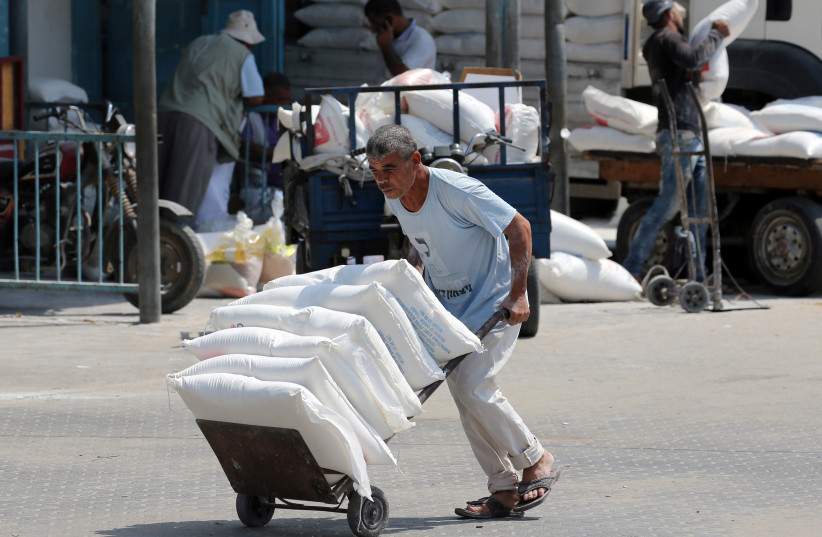The Palestinian Authority’s economy is not sustainable warned members of a donor parley that met in Brussels on Wednesday and Thursday as foreign contributions continued to decline.
“The discussions over the last two days have highlighted how serious the situation is on the ground,” said Norwegian Special Representative Hilde Haraldstad on Thursday after the two-day gathering of the biannual Ad Hoc Liaison Committee (AHLC).
They met amid escalating Israeli-Palestinian violence and as reports were made to the gathering of over 15 countries and organizations, that included representatives from the PA, Israel and the United States.
World Bank Country Director Stefan Emblad tweeted after the meeting that “raising living standards [and] improving fiscal sustainability in the Palestinian territories requires further PA reforms, increased cooperation by [Israel and] generous [and] predictable foreign aid.”
Prior to the meeting, a report by UNSCO, the Office of the United Nations Special Coordinator for the Middle East Peace Process Tor Wennesland, warned that PA reform efforts could not fix the fiscal issues in light of the larger unresolved geo-political ones.

Among the issues under discussion have been low donor funding which has dropped by 79% since 2014 and Israel’s policy of withholding tax fees it collects on behalf of the PA.
Israel has offset the sum the PA spends in monthly grants to Palestinian terrorists and their family members.
Transferring funds between groups
Prime Minister Benjamin Netanyahu’s government has doubled that sum to $30 million a month in response to continued terror attacks. It also transferred NIS 138 m. ($37.5 m.) from those tax fees to Israeli victims of Palestinian terror.
On Wednesday while the AHLC met in Brussels, Finance Minister Bezalel Smotrich ordered the Tax Authority to transfer an additional NIS 3.2 million to terror victims.
The meeting follows two unusual gatherings held this year in Jordan’s Aqaba and Egypt's Sharm el-Sheikh to discuss the Israeli-Palestinian security situation that also dealt with the PA economy. It included Israeli and Palestinian representation along with officials from the United States, Jordan and Egypt. The latter two countries were also present in Brussels.
PA Prime Minister Mohammed Shtayyeh had been expected to represent the Palestinians in Brussels, but its delegation was led instead by PA Finance Minister Shukri Bishara. US Special Representative for Palestinian Affairs Hady Amr headed the Biden administration’s delegation and Foreign Ministry Deputy Director-General Oded Yosef represented Israel.
“At the meeting in Brussels, the international community strongly urged the Israelis and Palestinians to take steps at the political level to address the core issues driving the conflict,” said Norwegian Foreign Minister Anniken Huitfeldt, whose country chairs the AHLC.
“This is essential to enable the parties to resume negotiations on a two-state solution and to achieve peace,’ she said.
